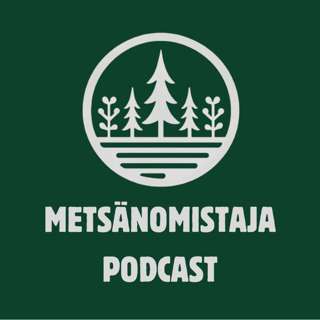
241 - Raphael Bousso: The Cold Truth About Quantum Mechanics
Raphael Bousso is the Chancellor’s Chair in Physics at the Berkeley Center for Theoretical Physics, where he leads the Bousso Group in research on quantum gravity and quantum information. He is a renowned string theorist famous also for his development of the string theoretic landscape and the Bousso bound in holography. In this episode, Robinson and Raphael talk about the foundations of quantum mechanics and whether or not there are any deep mysteries within the theory that remain to be solved, and whether philosophical discussion of these issues is overblown. More particularly, they get into what quantum theories tell us about the world, whether we need different interpretations of quantum mechanics, whether the final theory of the universe will be quantum mechanical, how quantum mechanics connects to cosmology, the multiverse, and quantum gravity, and more. The Bousso Group: https://lightsheet.berkeley.edu OUTLINE 00:00 Introduction 00:58 Raphael’s Interest in the Interpretations of Quantum Mechanics 06:11 What Does Quantum Mechanics Tell Us About the World? 19:43 Just What Is an Interpretation of Quantum Mechanics? 26:17 Are There Serious Holes in Quantum Mechanics? 31:01 Schrödinger’s Cat 45:11 UV Completion 48:57 Will The Final Theory of Physics Be Quantum Mechanical? 58:00 How Cosmology Might Help Answer Questions About Quantum Mechanics 1:13:44 String Theory and the Multiverse 1:20:39 How the Multiverse Can Explain Probability 1:30:01 Will the Foundations of Quantum Mechanics Help Us Solve Quantum Gravity? Robinson’s Website: http://robinsonerhardt.com Robinson Erhardt researches symbolic logic and the foundations of mathematics at Stanford University.
19 Tammi 1h 37min

240 - Peter Godfrey-Smith: Cuttlefish, Octopuses, and the Consciousness of Mysterious Minds
Robinson’s Podcast #240 - Peter Godfrey-Smith: Cuttlefish, Octopuses, and the Consciousness of Mysterious Minds Peter Godfrey-Smith is a professor in the School of History and Philosophy of Science at the University of Sydney. He has also taught at Stanford University and Harvard University. Among other topics, he has researched the philosophy of biology and mind, and is very well-known for his book Other Minds: The Octopus, The Sea, and the Deep Origins of Consciousness (FSG, 2016). In this episode, Peter and Robinson discuss that book, as well as his latest, Living on Earth (William Collins, 2024). More particularly, they discuss cuttlefish, octopuses, consciousness, metaethics, and animal welfare. Peter’s Website: https://petergodfreysmith.com Living on Earth: https://a.co/d/9MvUFHV OUTLINE 00:00 Introduction 01:10 Scuba Diving with Cuttlefish and Octopuses 09:43 Why Did Creatures Evolve Nervous Systems? 16:18 Why Did Conscious Minds Evolve? 27:23 Why Do We Believe that Other Animals Have Minds? 36:49 Do Shrimp or Fish Feel Pain? 47:01 What’s It Like to Be an Octopus? 57:32 What Is Metaethics? 1:04:57 First-Order Ethics 1:08:12 Is It Morally Acceptable to Eat Animals? 1:16:04 What Does Peter Eat? 1:29:49 Future Work
12 Tammi 1h 31min

239 - Ned Block: Consciousness, Artificial Intelligence, and the Philosophy of Mind
Ned Block is Silver Professor at New York University in the Departments of Philosophy and Psychology, where he works on the philosophy of mind, the philosophy of neuroscience, and cognitive science. In this episode, Robinson and Ned discuss some of the titans he studied under, ChatGPT and the nature of artificial intelligence, the Turing Test, androids, consciousness, the connection between seeing and thinking, blindsight, change blindness, and more. Ned’s most recent book is The Border Between Seeing and Thinking (OUP, 2023). Ned’s Website: https://www.nedblock.us The Border Between Seeing and Thinking: https://a.co/d/fqVb7gj OUTLINE 00:00 Introduction 00:53 Ned’s Entry into Philosophy of Mind 02:08 On Hilary Putnam, John Rawls, and Philippa Foot 08:10 Can ChatGPT Do Multiplication? 10:57 Does Noam Chomsky Understand ChatGPT? 13:11 Is the Turing Test Completely Wrong? 17:52 On Daniel Dennett 23:46 On Michael Graziano and the Attention Schema Theory of Consciousness 26:03 Are Animals Conscious? 30:51 Does ChatGPT Pass the Turing Test? 36:53 Mary in the White Room 41:16 The Blockhead Thought Experiment 45:53 How to Show that ChatGPT Is Dumb 48:51 Why Can’t ChatGPT Reason About Images? 51:48 How to Create an Android 55:10 What Is Thought? 1:00:13 Susan Carey 1:03:19 Are There Different Kinds of Consciousness? 1:05:10 On Psychoanalysis 1:06:08 What Are Blindsight and Change Blindness? 1:11:38 The Difference Between Seeing and Thinking 1:16:03 Was Helen Keller Conscious? 1:18:39 Are Salmon Conscious? 1:20:58 What Are the Dominant Theories of Consciousness? 1:27:35 Do We Know What Consciousness Is? 1:31:25 Functionalism and Mental Properties Robinson’s Website: http://robinsonerhardt.com Robinson Erhardt researches symbolic logic and the foundations of mathematics at Stanford University.
29 Joulu 20241h 35min

238 - Barry Loewer: What Is The Philosophy of Science?
Barry Loewer is Distinguished Professor of Philosophy at Rutgers. Before that he did his PhD in philosophy at Stanford. Barry works largely in the philosophy of physics, the philosophy of science, and metaphysics. This is Barry’s third appearance on the show. He was last on episode 189 with David Albert, in which Robinson, David, and Barry discussed David and Barry’s joint program known as “The Mentaculus”, which they use to solve many problems in the foundations of physics, from probability to the direction of time. In this episode, Barry and Robinson discuss the philosophical foundations of science, touching on the relationship between science and pseudoscience, Karl Popper, string theory, scientific realism, and many other important debates and figures. If you’re interested in the foundations of physics, then please check out the the John Bell Institute for the Foundations of Physics, which is devoted to providing a home for research and education in this important area. Any donations are immensely helpful at this early stage in the institute’s life. The Probability Map of the Universe: https://a.co/d/4XoYTMY The John Bell Institute: https://www.johnbellinstitute.org OUTLINE 00:00 Introduction 7:53 On Pseudoscience and Astrology 11:40 Falsification as a Criterion of Science 16:40 Is String Theory Pseudoscience? 20:14 On Marxism 24:45 What Is Scientific Realism? 34:35 On Hilary Putnam 42:16 Science Vs Metaphysics 48:32 Time in Science and Metaphysics 52:38 On Fundamentalia 56:01 On Reductionism 1:00:04 On Consciousness and Emergence 1:04:56 On Causation 1:25:52 On Time Travel 1:28:29 On Explanation and Thermodynamics 1:39:23 On Free Will 1:47:00 The Laws of Nature Robinson’s Website: http://robinsonerhardt.com Robinson Erhardt researches symbolic logic and the foundations of mathematics at Stanford University.
15 Joulu 20242h 1min

237 - Tim Maudlin: A Masterclass on Special Relativity
Tim Maudlin is Professor of Philosophy at NYU and Founder and Director of the John Bell Institute for the Foundations of Physics. This is Tim’s seventh appearance on the show. He last appeared on episode 210 with David Albert for a discussion of the measurement problem in quantum mechanics. In this episode, Tim and Robinson talk about Albert Einstein’s theory of special relativity, explaining it from the ground up and elucidating some common misconceptions. More particularly, they get into Einstein’s magnificent mind, how special relativity displaced the theory of the ether, absolute and relative space, the speed and nature of light, the possibility of time travel, relativistic quantum mechanics, and more. If you’re interested in the foundations of physics, then please check out the JBI, which is devoted to providing a home for research and education in this important area. Any donations are immensely helpful at this early stage in the institute’s life. Tim’s Website: www.tim-maudlin.site The John Bell Institute: https://www.johnbellinstitute.org OUTLINE 00:00 Introduction 01:59 The Amazing Fertility of Einstein's Mind 08:50 The Mysterious Ether and Why It Isn't All Around Us 25:01 Einstein Versus Relative and Absolute Space 29:58 The Single Most Important Experiment in Physics 45:23 Special Relativity and Absolute Space 53:56 The Conceptual Clarity of Genius Physicists 1:01:05 A Thought Experiment to Explain Einstein's Theory of Special Relativity 1:13:48 Is the Speed of Light an Illusion? 1:23:33 Richard Feynman's Big Mistake About Einstein 1:34:23 On Einstein and the Possibility of Time Travel 1:42:53 Is Special Relativity Compatible with Quantum Mechanics? 1:49:55 Relativistic Bohmian Mechanics 1:57:00 Does Anything Move Faster than Light? 1:59:03 The John Bell Institute for the Foundations of Physics Robinson’s Website: http://robinsonerhardt.com Robinson Erhardt researches symbolic logic and the foundations of mathematics at Stanford University.
8 Joulu 20242h 3min

236 - David Albert: A Masterclass on Time’s Arrow
David Albert is the Frederick E. Woodbridge Professor of Philosophy at Columbia University, director of the Philosophical Foundations of Physics program at Columbia, and a faculty member of the John Bell Institute for the Foundations of Physics. This is David’s ninth appearance on Robinson’s Podcast. He last appeared on episode 221 to discuss the measurement problem of quantum mechanics. In this episode, David gives a pedagogical and introductory overview of the problem of time’s arrow, which is one of the most enduring of all physical and philosophical puzzles. David’s most recent book is A Guess at the Riddle (2023). If you’re interested in the foundations of physics, then please check out the JBI, which is devoted to providing a home for research and education in this important area. Any donations are immensely helpful at this early stage in the institute’s life. A Guess at the Riddle: https://a.co/d/6qcsidl The John Bell Institute: https://www.johnbellinstitute.org OUTLINE 00:58 The Tension Between Past and Future in Physics 8:56 The Arrow of Time in Life and Physics 12:26 The Three Arrows of Time 18:12 Entropy and the Direction of Time 29:12 Thermodynamics and the Problem of the Past 38:26 Why Do We Remember the Past But Not the Future? 48:46 Two Ways to Understand the Past 1:04:21 Why Can We Affect the Future But Not the Past 1:17:51 Why Can Agents Control the Future but not the Past? 1:26:57 Can the Laws of Quantum Physics Be Run Backward? 1:33:11 The Connection Between the Foundations of Quantum Physics and Statistical Mechanics 1:41:53 Cosmology and the Past Hypothesis 1:44:25 Why are Left and Right Different from Past and Future? 1:49:28 The Difference Between Space and Time 1:57:14 Is Time a Fundamental Part of Reality? 1:59:14 Future Work Robinson’s Website: http://robinsonerhardt.com Robinson Erhardt researches symbolic logic and the foundations of mathematics at Stanford University
2 Joulu 20242h 2min

235 - Janna Levin: How to Survive a Black Hole
Janna Levin is the Claire Tow Professor of Physics and Astronomy at Barnard College of Columbia University. She is also the Chair and Founding Director of the Science Studios at Pioneer Works. In this episode, Robinson and Janna talk all about black holes and how to survive them. More particularly, they discuss how black holes were discovered both theoretically and empirically, common misconceptions about black holes, their role in theories of quantum gravity, and how they do and will contribute to both the life and death of the universe. If you’d like to learn more about black holes, read Janna’s latest book, Black Hole Survival Guide (Anchor, 2022). Janna’s Website: https://jannalevin.com Black Hole Survival Guide: https://a.co/d/biGGqZc Pioneer Works: https://pioneerworks.org OUTLINE 00:00 Introduction 06:10 The Original Theory of Black Holes 14:45 Is There Gravity in Space? 20:40 Just What IS a Black Hole? 38:47 Why Physicists Resisted the Possibility of Black Holes 50:44 What’s at the Center of a Black Hole? 55:34 What Happens When Something Falls into a Black Hole? 1:03:23 Is Leonard Susskind a Genius Physicist? 1:12:07 What Is the Fine-Tuning Problem? 1:17:52 How Close Can You Get to a Black Hole and Still Survive? 1:25:10 Why Are Black Holes Perfect Objects? 1:32:12 How Do Black Holes Form? 1:41:31 What Will Happen to the Sun When It Dies? 1:50:38 Black Holes, Dark Energy, and the Fate of the Universe 1:54:45 The Heat Death of the Universe 1:59:18 Pioneer Works Robinson’s Website: http://robinsonerhardt.com Robinson Erhardt researches symbolic logic and the foundations of mathematics at Stanford University.
17 Marras 20242h 4min





















